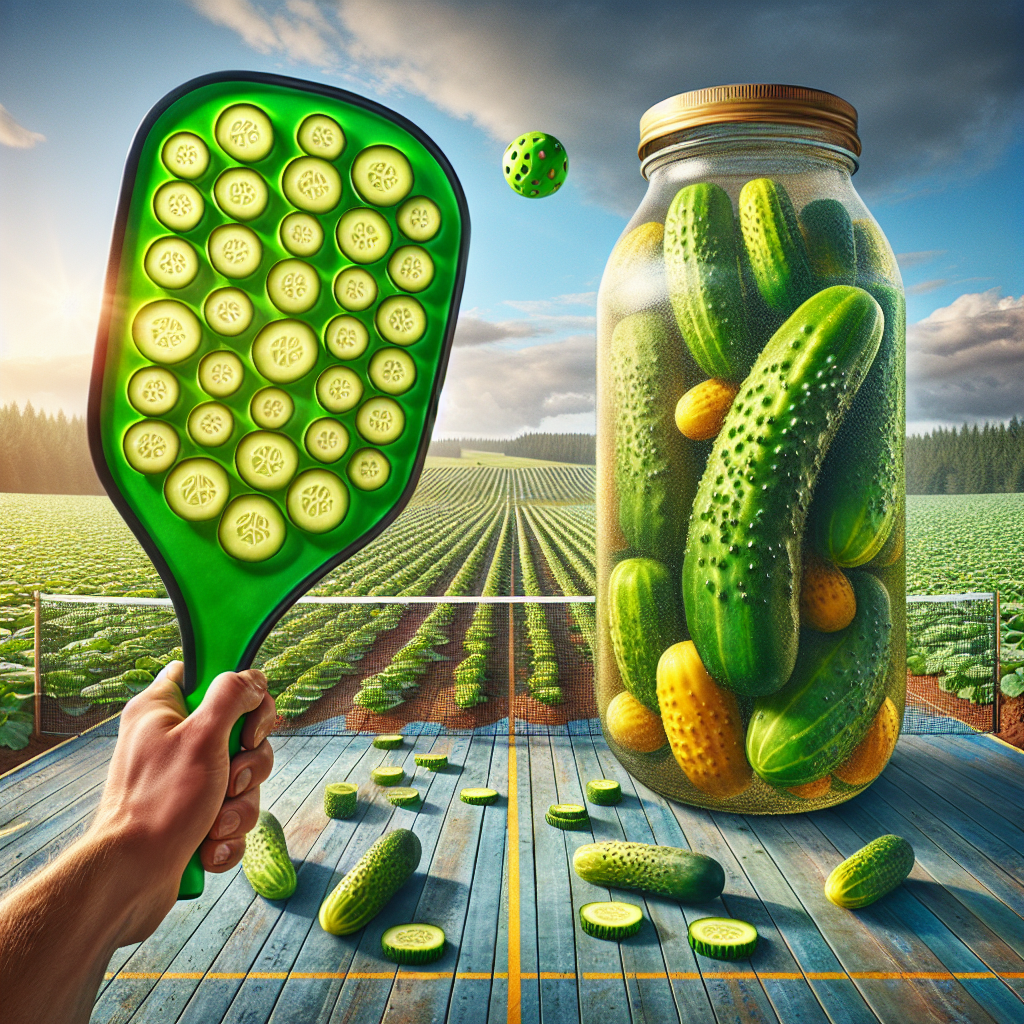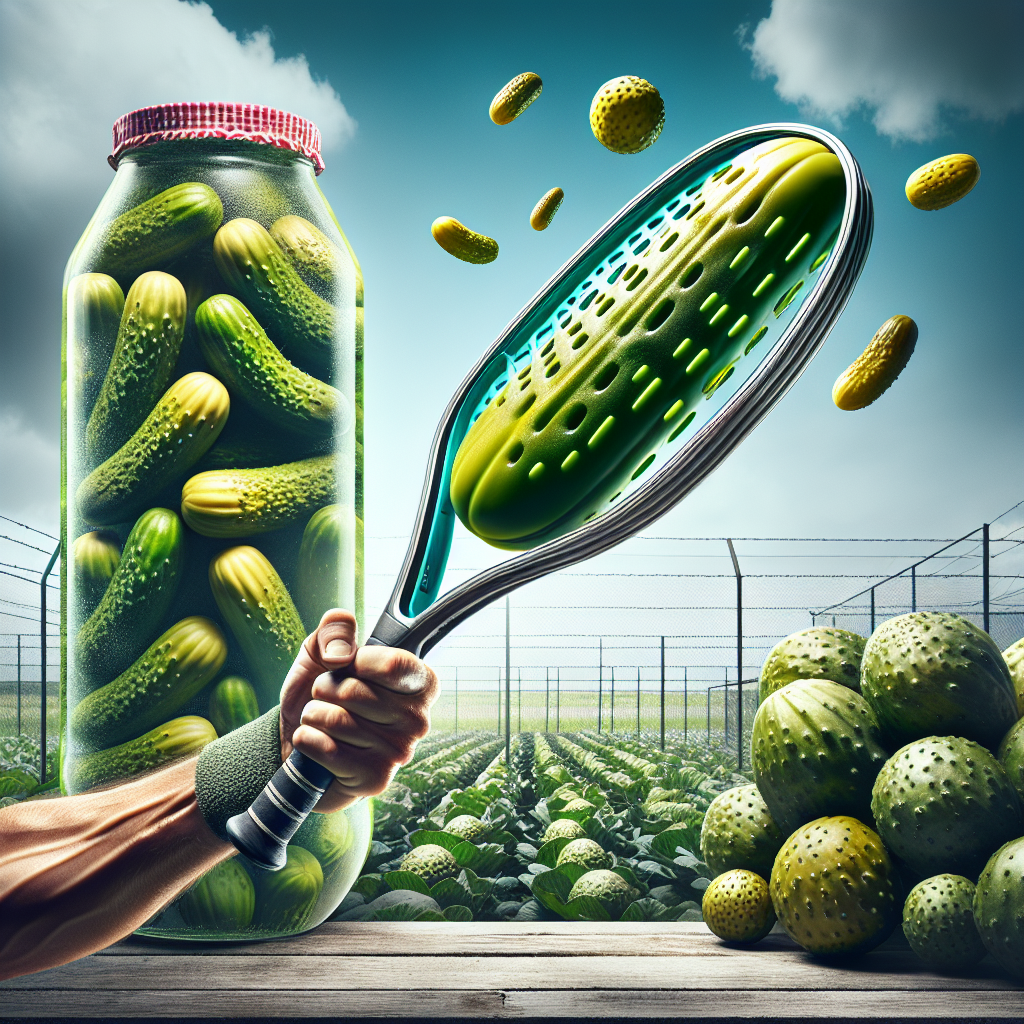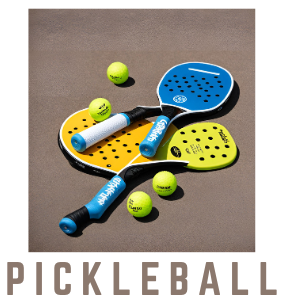Ever wondered why this quirky and fast-paced sport is called pickleball? The origins of its name are a fascinating blend of playful creativity and happenstance. In this article, we will uncover the intriguing story behind the name, taking you on a journey through time and unraveling the captivating reason why they call pickleball, well, pickleball. So grab your paddle and get ready to swing into the captivating world of this unique sport’s name!
Origins of Pickleball
Founding of the Sport
Pickleball, a popular sport played worldwide, has an intriguing history full of mystery and speculation surrounding its origin. It all began in the summer of 1965, when three visionary individuals with a passion for racquet sports embarked on a quest to create a unique and inclusive game. Joel Pritchard, Bill Bell, and Barney McCallum came together on Bainbridge Island, Washington, to invent a new sport that would provide entertainment for their families while being accessible to people of all ages and athletic abilities.
Inventors and Their Inspiration
The three inventors drew inspiration from various sources to create their revolutionary game. Joel Pritchard’s backyard was the testing ground for their ideas, and as a result, they incorporated elements from badminton, table tennis, and tennis. By combining the dimensions of a badminton court, the nets from both badminton and tennis, and modified table tennis paddles, they crafted a game that possessed its unique blend of excitement and strategy. Little did they know that their creation would eventually become known as pickleball.
The Naming Mystery
Multiple Theories
One of the most intriguing aspects of the origins of pickleball is the mystery behind its name. Over the years, numerous theories have emerged, each offering a distinct explanation for how the sport acquired its peculiar moniker. While we may never truly know the exact truth, these theories provide insight into the speculation and folklore surrounding pickleball’s naming.
Anecdotes and Folklore
Before delving into the various theories, it is essential to acknowledge the prevalence of anecdotes and folklore in pickleball’s naming. Many enthusiasts and players have their own stories and humorous tales about how they believe the sport received its unique name. These stories add charm and intrigue to the history of pickleball, perpetuating the legends associated with its creation.

Theory 1: Pickles and Dog
The Story of a Dog Named Pickles
One of the most popular theories surrounding pickleball’s name involves a dog named Pickles. According to this theory, Joel Pritchard’s family dog, Pickles, played a significant role in the naming process. As the story goes, Pickles would often chase after the stray balls during the early stages of the game’s development. The inventors’ families jokingly suggested naming their new creation after their furry companion, and thus, the name “pickleball” was born.
Comparison to the Game
Although the connection between a dog named Pickles and the sport of pickleball may seem far-fetched, some enthusiasts draw parallels between the game and qualities often associated with pickles. Just like the sport requires quick movements and agile reflexes, pickles are known for their ability to snap and move rapidly. This theory adds a touch of whimsy to the origins of pickleball and further fuels the speculation surrounding its name.
Theory 2: Pickle Boat
Pickleball Origins Linked to Yacht
Another theory that has gained traction suggests that the name “pickleball” was inspired by a yacht named “Pickle.” According to this hypothesis, Joel Pritchard’s wife, Joan, discovered the sport’s paddle design while aboard the “Pickle” and suggested incorporating it into the game. As a result, the players began referring to their modified paddles as “pickleball paddles.” This theory connects the origins of the sport to a specific object, adding a unique twist to the naming mystery.
Connection to the Sport’s Name
The association between the name of the yacht and the sport of pickleball may seem tenuous, yet it highlights the creativity and inspiration that can arise from unexpected sources. While the theory of the “pickle boat” may not provide a definitive explanation for the sport’s name, it contributes to the lore and storytelling surrounding pickleball’s origins.

Theory 3: Pickleball Paddle
Characteristics of Pickleball Paddles
A third theory suggests that the distinctive characteristics of pickleball paddles played a role in the sport’s naming. As the inventors were developing the game, they experimented with different paddle designs, ultimately settling on a paddle with perforated holes. These holes, reminiscent of the holes found in pickles, provided players with improved control and maneuverability. The unique paddle design, coupled with the inventors’ fondness for wordplay, led to the adoption of the name “pickleball.”
Naming Influence of the Equipment
Just as the design and functionality of the paddle influenced the naming of pickleball, the name “pickleball” has also influenced subsequent paddle designs. Manufacturers create paddles specifically designed for pickleball, taking into account the sport’s unique characteristics and the preferences of players. This theory demonstrates the interplay between the equipment used in pickleball and the sport’s name, giving the game an additional layer of intrigue.
Theory 4: Pickle Relish
Role of Pickles in Early Tournaments
Another theory dives deeper into the involvement of pickles within the early stages of pickleball and its subsequent naming. Some speculate that pickleball tournaments would often feature a potluck-style gathering, where players would bring various dishes to share. Among the culinary contributions, pickle dishes, particularly pickle relish, became a popular choice. The prevalent presence of pickles in these early tournaments, alongside the novel game being played, led to the adoption of the name “pickleball.”
Influence on the Sport’s Name
The connection between pickles and pickleball in this theory extends beyond a playful coincidence to become part of the game’s identity. The delicious association with pickles adds a touch of culinary charm to the origins of pickleball and showcases the unconventional sources of inspiration that contributed to its naming.

Theory 5: Pickleball Rules
Unique Aspects of the Game
One theory suggests that the sport’s name stems from specific rules that distinguish pickleball from other racquet sports. Unlike many traditional sports, pickleball has specific rules that require players to “pickle” the ball, meaning they must hit it with an underhand motion. This unique rule, among others, sets pickleball apart and contributes to the sport’s playful and distinctive nature.
Impact on the Naming
The theory emphasizing the influence of pickleball’s rules on its name underscores the intention of the inventors to create a sport that encourages inclusivity and fun. By selecting a name that reflects the essence of the game’s rules, the inventors reinforced the unique qualities that make pickleball so enjoyable and accessible to players of all skill levels.
Pickleball as a Funny Name
Humorous Element of the Sport
Regardless of the theories surrounding its name, it is undeniable that the term “pickleball” evokes a sense of whimsy and lightheartedness. This humorous element is deeply ingrained in the sport’s culture and serves as a distinguishing feature that sets pickleball apart from other sports. The playful nature associated with the name contributes to the sport’s appeal and fosters a sense of camaraderie among players.
Pickleball’s Lighthearted Image
The humorous and lighthearted image of pickleball is further perpetuated by its enthusiastic community. Players often embrace the sport’s unique name, amusing one another with puns and jokes related to pickles. This cheerful spirit fosters a warm and welcoming environment for both new and seasoned players, making it no surprise that pickleball’s popularity continues to grow.

Pickleball’s Evolution
Rapid Growth in Popularity
Since its creation over five decades ago, pickleball has experienced an extraordinary surge in popularity. From its humble beginnings on Bainbridge Island, the sport quickly spread throughout the United States and eventually gained international recognition. Pickleball’s accessibility, engaging gameplay, and inclusive nature have played pivotal roles in attracting people of all ages and backgrounds to join the growing pickleball community.
The Name’s Staying Power
Despite the ever-increasing popularity of pickleball, the origins of its name remain shrouded in mystery. While theories abound, the exact truth may never be fully uncovered. Yet, this enigma adds another layer of fascination and intrigue to the sport. The distinctive name has become ingrained in the sport’s identity, captivating players and enthusiasts worldwide.
Conclusion
The origins of pickleball and its unique name are surrounded by a veil of uncertainty and speculation. From theories involving dogs and yachts to pickles adorning tournaments and the influence of game rules, pickleball’s name continues to captivate our curiosity. Regardless of its origin, pickleball’s enduring popularity and lighthearted image demonstrate that the name is not merely a whimsical coincidence but a reflection of the sport’s joyful and inclusive spirit.


